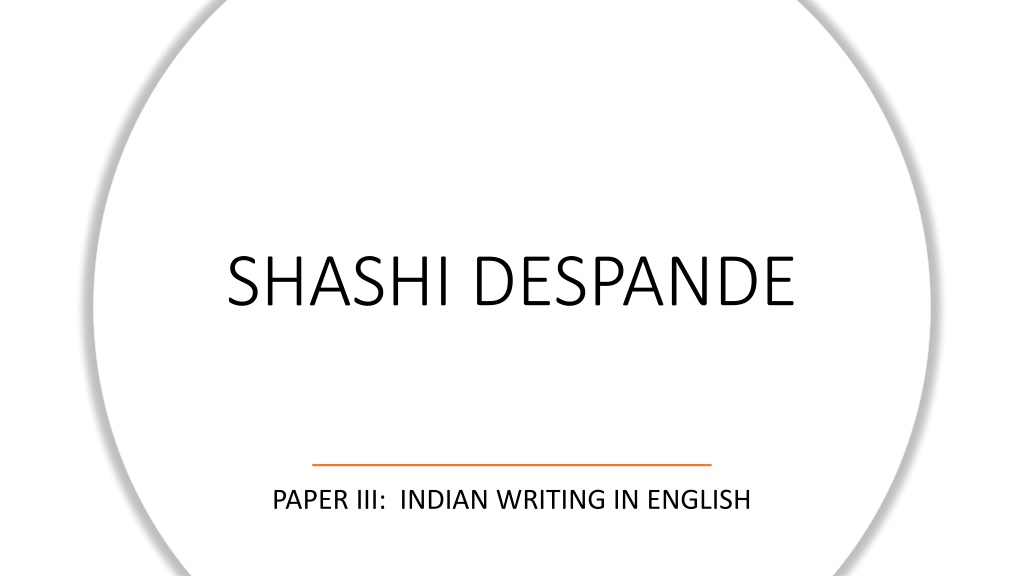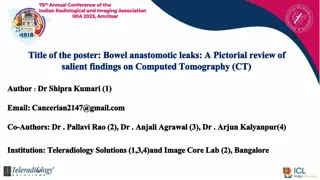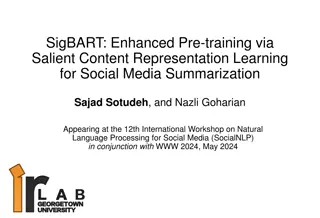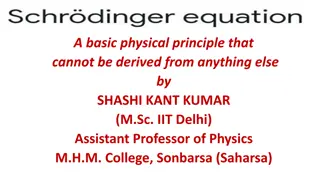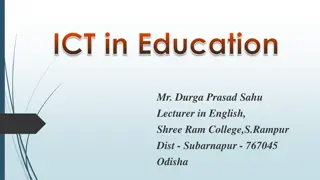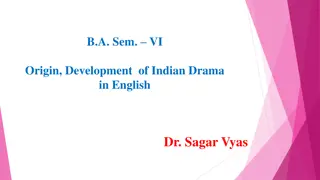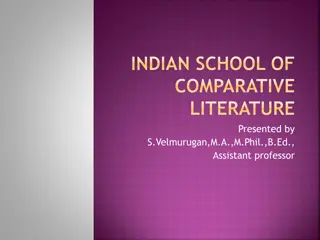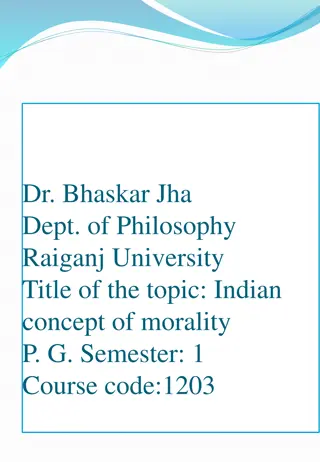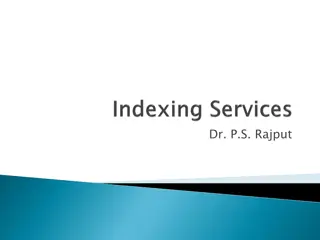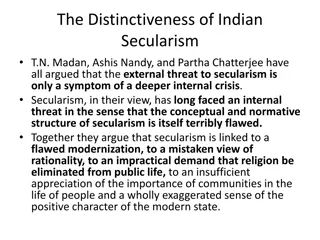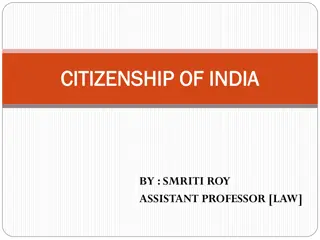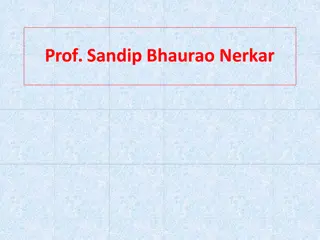Salient Features of Shashi Deshpande's Indian Writing in English
Shashi Deshpande's writings are known for their simple language, portrayal of the modern Indian woman's identity, exploration of emotional struggles, and societal analysis. Her works focus on themes of womanhood, relationships, and personal experiences within Indian society, challenging traditional gender roles. Despite addressing women's issues, Deshpande distances herself from feminist labels, emphasizing human experiences over militant feminism.
Download Presentation

Please find below an Image/Link to download the presentation.
The content on the website is provided AS IS for your information and personal use only. It may not be sold, licensed, or shared on other websites without obtaining consent from the author. Download presentation by click this link. If you encounter any issues during the download, it is possible that the publisher has removed the file from their server.
E N D
Presentation Transcript
SHASHI DESPANDE PAPER III: INDIAN WRITING IN ENGLISH
The short story is a piece of fiction dealing with a single incident, material or spiritual, that can be read at one sitting; it is original; it must sparkle, excite, or impress; and it must have a unity of effect or impression. It must move in an even line from its exposition to its close. Edgar Allen Poe.
SALIENT FEATURES OF DESHPANDES WRITINGS Simple language Interplay between tradition and modernity Analytical both of the society and of the self Realistic portrayal of Indian lives especially that of women in modern Indian society Characters generally belong to the social strata of urban society The issues revolve around family The portrayal of the new woman is a recurrent theme in Deshpande s fiction. She has her own identity and defies the traditional role of women in society Liberty, freedom and woman emancipation Female Friendship
CONTINUED Story has a specific theme of the personal experience of the characters and their inner world and not that of broader themes like nationalism, partition, motherland etc. Portrayal of the typical middleclass woman mostly housewives. Traditional roles of women and their self-awareness and realization Loneliness of women Sexuality and gender roles Tension and complexities in married couples. Man-woman relationship and woman s relationship to other women. Explores the psychological domain of her women characters- frustration, guilt, desperation, her struggle to preserve her identity.
CONTINUED Exploitation of middle-class women in a society which is predominantly male centered. Frankness and boldness in terms of characterization. Emotional deprivation of women Portrayal of the real life like situation and not the mainstream portrayal of India as the land of snake charmers and Maharajas. Theme of women s life revolving around the concept of marriage. Female quest for identity.
Shashi Deshpande however does not identify her writings with Feminist narratives. She concerns herself with women's issues in the Indian context. However, she has made bold attempts at giving a voice to the disappointments and frustrations of women despite her vehement denial of being a feminist. Major women characters in her writings have exposed the gross gender discrimination. However, she denies any influence of the militant feminism like that of Germaine Greer, Betty Friedan, and Kate Millet. She says that she wrote before she read about them and is of the opinion that it limits her human existence.
Later, Shashi Deshpande changes her stand and admits herself to be a feminist but only as a person and certainly not as a novelist. Women-centered narratives in her novels have led many interviewers to ask her as to what extent does she consider herself a feminist. In one such interview Shashi Deshpande says: I now have no doubts at all in saying that I am a feminist. In my own life, I mean. But not consciously, as a novelist. I must also say that my feminism has come to me very slowly, very gradually, and mainly out of my own thinking and experiences and feelings. I started writing first and only then discovered my feminism. And it was much later that I actually read books about it."
If others see something feminist in my writings, I must say that it is not consciously done. It is because the world for women is like that and I am mirroring the world Shashi Deshpande
To be continued (In our next zoom class, we would be discussing the themes of The Intrusion. Please read and be prepared for discussion)
